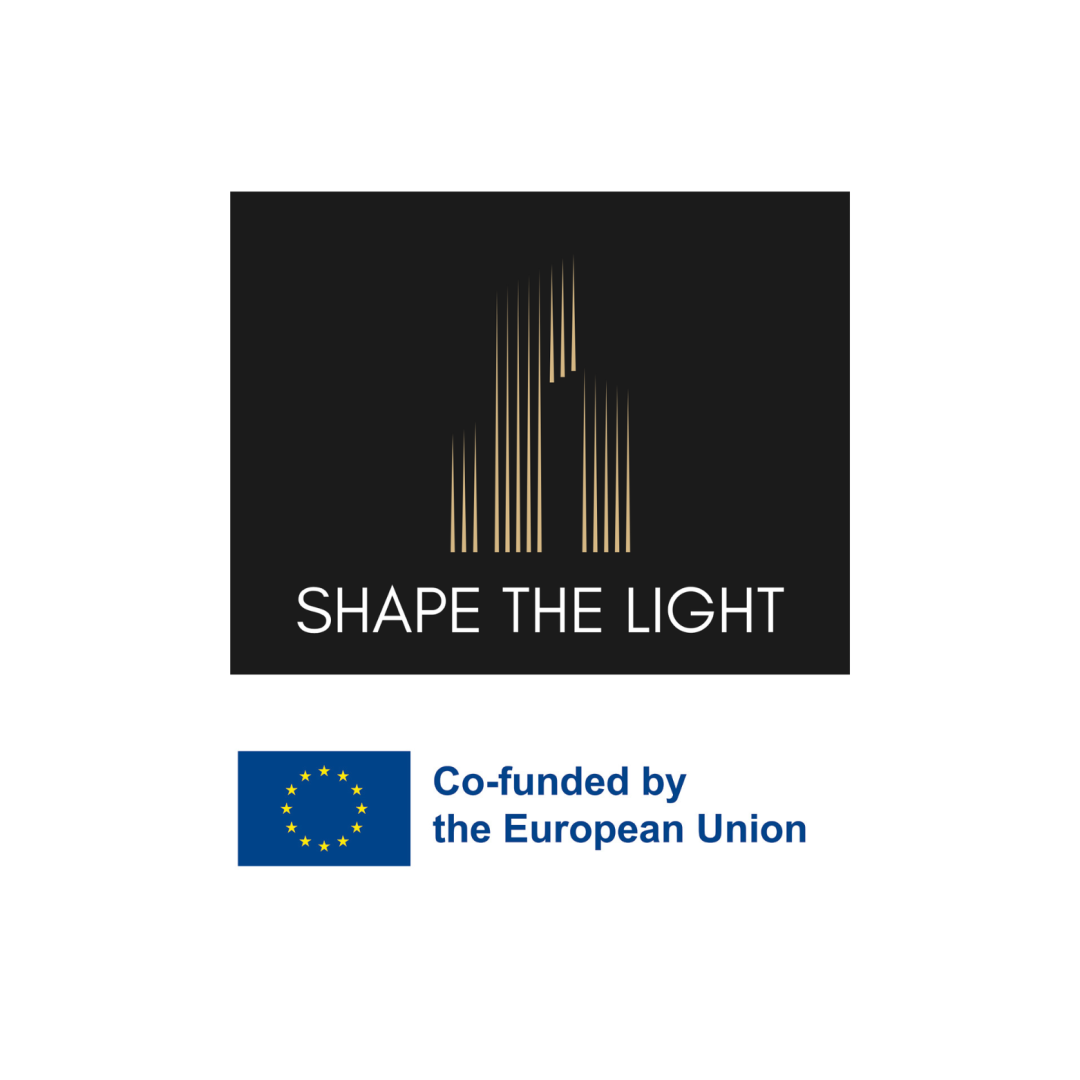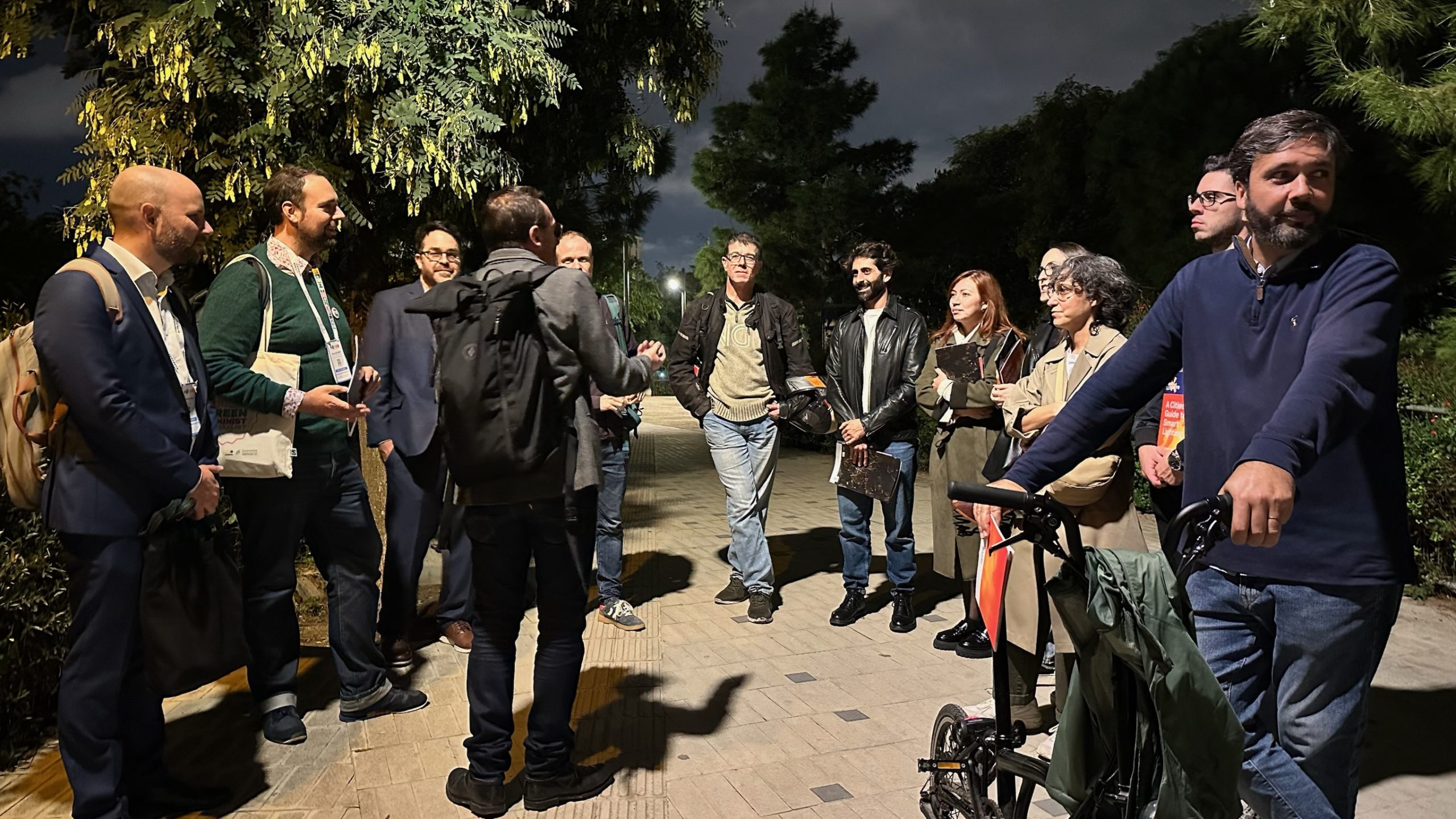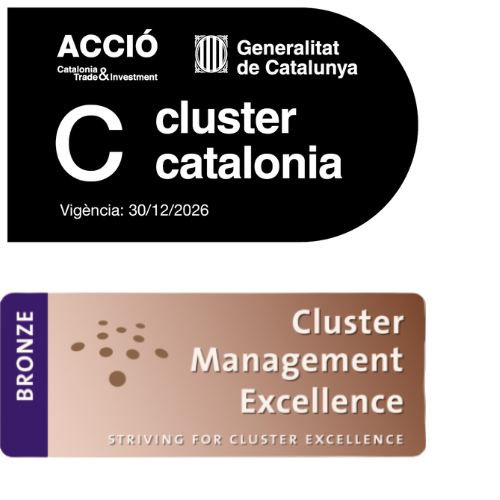On November 6th, the streets of El Clot and surrounding areas in Barcelona transformed into the setting of a unique and immersive experience: Dark Walk 2024, organized by the CICAT Lighting Cluster in collaboration with the LUCI Association. The event gathered lighting professionals, urban planners, designers, and enthusiasts to explore the urban nightscape through a different lens—darkness.
The walk was led by Alberto Barberá, Lighting Designer and CICAT member, and Bruno Paternot, Vice President of Montpellier Méditerranée Métropole and First Vice President of LUCI. Together, they guided participants through an inspiring night journey, revealing the subtle interplay between light and shadow in shaping our experience of public spaces.
Throughout the walk, participants had the chance to observe and analyze how various lighting approaches affect our perception of safety, beauty, and atmosphere in the city. With light meters in hand and a keen sense of curiosity, the group engaged in discussions around the challenges and opportunities of contemporary lighting design—from light pollution to sustainable lighting strategies.
One of the most memorable moments was walking through a series of illuminated frames that created a hypnotic, tunnel-like experience—inviting everyone to reflect on both the functional and symbolic dimensions of light. The group also stopped to observe different types of luminaires and lighting setups, assessing how materials, vegetation, and installation height contribute to the urban night experience.
The evening concluded with an open reflection on how better lighting design can create safer, more inclusive, and more livable cities. It was a night filled with insights, dialogue, and shared passion for lighting and urban transformation.
Thank you to all who joined us for making Dark Walk 2024 a glowing success.
We look forward to seeing you at the next night walk!





